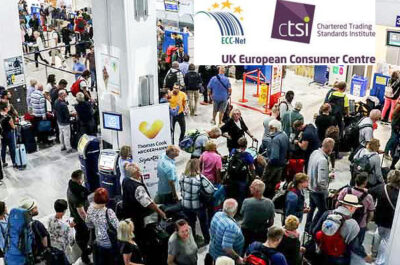Common problems within the discount holiday club sector still include complaints about cashbacks or ‘bond certificates’, which generally come in waves triggered when specific cashback periods (say five or 10 years) come into force.
Complaints by UK consumers about discount holiday clubs have halved over the course of a year, according to consumer advice organisation UK European Consumer Centre. The centre is reporting a 55 % decrease in the number of such ‘in-depth’ complaints it received from UK consumers over the course of a year.
The same picture is repeated in the related category of ‘other related propositions’ (which includes things such as bonus week breaks or legal services).
Andy Allen, UK ECC Director, said: “Whilst we do still receive significant numbers of complaints about this sector, our figures show a very positive story for the two complaint categories of discount holiday clubs and ‘other related propositions’.
“One-year holiday club contracts had emerged as a growing product after the implementation in 2011 of the EU Timeshare Directive (2008/122/EC). But in 2013 they started sliding down our table of most complained about sectors. In 2012 we received more complaints about this sector than any other, but in 2013 they had fallen back to second place and in 2014 they had fallen back to third place. In fact, the number of complaints that the UK ECC received in 2014 about discount holiday clubs actually halved compared to 2013.
“With high front-loaded costs, these one-year holiday club contracts are renewable on an annual basis (effectively making them a longer product) and therefore fall outside the revised EU Timeshare Directive legislation.”
The UK ECC announced the drop in complaints about discount holiday clubs as it released its 2014 annual report.
Common problems within the discount holiday club sector still include complaints about cashbacks or ‘bond certificates’, which generally come in waves triggered when specific cashback periods (say five or 10 years) come into force. Cashback schemes are when consumers are promised money back after a specified period from a separate cashback company as an incentive when buying a timeshare or holiday club product. This can go wrong for a number of reasons, especially if the redemption instructions are not followed to the letter.
These cashback deals are less common than previously as many cashback companies themselves have gone out of business. This, coupled with the bad press generated by such schemes, has had a positive effect by generating a wider consumer awareness.
Other problems within the discount holiday club sector include cancellation problems and difficulties connected to maintenance fees payments. Legal services offering to recover consumers’ money from timeshare and holiday club deals which have gone sour are fairly common.
Andy added: “It’s certainly true that discount holiday clubs are less complained about than they were a few years back. Although most holiday clubs weren’t included in the revised legislation due to the length of their contracts, the law has had a positive effect in that by 2013 businesses seemed to have stopped selling so many holiday club products. The Directive was adopted to address loopholes and weaknesses following major marketplace developments which fell outside the original 1994 timeshare legislation.
“There has also been lots of publicity surrounding discount holiday clubs and the wider timeshare market, so the exposure surrounding such products appears to be working.”
Theodore is the Co-Founder and Managing Editor of TravelDailyNews Media Network; his responsibilities include business development and planning for TravelDailyNews long-term opportunities.






































































































































































































